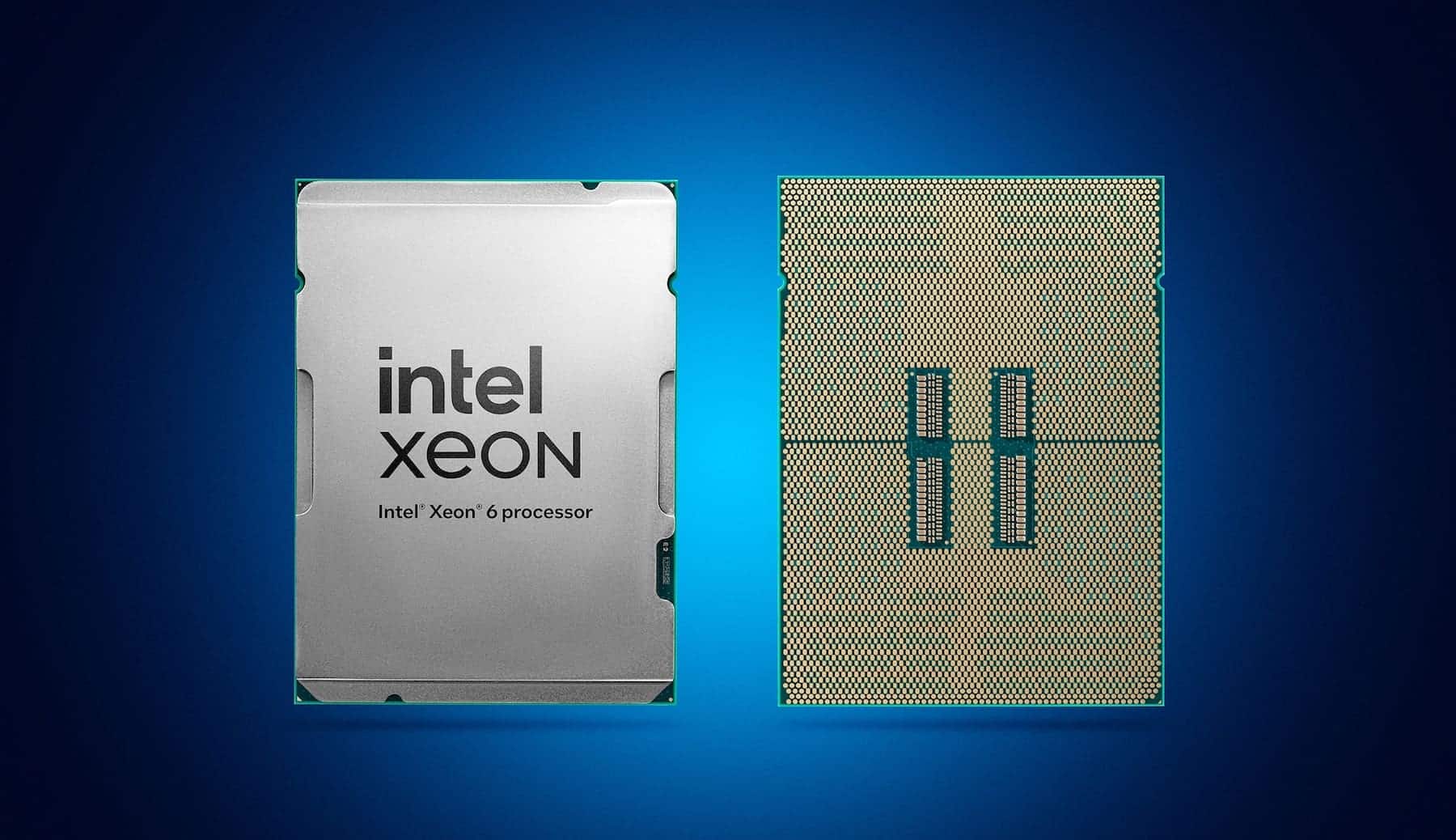Intel has made a strategic shift in its line of Xeon 6 “Granite Rapids” processors, announcing significant price reductions of up to 30%. This move, quietly implemented and reflected in Intel’s ARK database, comes just four months after the processors’ launch in September, aiming to intensify its competition with AMD in the data center market.
The most notable cut affects Intel’s flagship processor, the Xeon 6980P with 128 cores, which has seen its price drop from $17,800 to $12,460, a reduction of 30%. This aggressive pricing strategy positions the Xeon 6980P below AMD’s direct competitor, the EPYC “Turin” 9755 with 128 cores, which currently costs $12,984. Even in terms of price per core, the Xeon now surpasses AMD’s offering, further intensifying the rivalry.
Reductions Across the Granite Rapids Range
In addition to the flagship model, Intel has adjusted the prices of other processors in the Granite Rapids line. These include:
- Xeon 6972P (96 cores): a 13% reduction.
- Xeon 6952P (96 cores): a 20% reduction.
These cuts make Intel’s processors particularly attractive to cloud service providers who prioritize core density and cost-effectiveness. However, this initial advantage comes at a cost: power consumption. For example, the 96-core Xeon 6972P requires 500 W of power, exceeding equivalent AMD models by 100 W. This difference could impact long-term operating costs, affecting the total cost of ownership (TCO) and return on investment (ROI) for data centers.
AMD and Intel in the Data Center Race
The price cuts come at a strategic moment for Intel, which is preparing to launch 288-core “Sierra Forest” Xeon processors this quarter. These new processors could redefine the competitive landscape, allowing for an updated comparison with AMD’s EPYC models, which currently lead with options of up to 192 cores in the EPYC 9965 model, priced at $14,813.
As both companies strive to gain ground in the data center market, factors such as wafer production capacity, performance per core, energy efficiency, and total operating cost will play a crucial role. While Intel has taken an aggressive stance with its pricing, AMD continues to stand out for the energy efficiency of its processors based on Zen 5c architecture.
Ultimately, the market will be dominated by the company that can offer the best balance between performance, energy efficiency, and operating costs, critical factors in an increasingly competitive data center environment.
via: Tech Power UP

